
THE NATURE OBSERVATIONS OF JEEWI LEE
From grains of sand to towering sculptures, Jeewi Lee's work transcends the boundaries…
Interview by Marcus Boxler
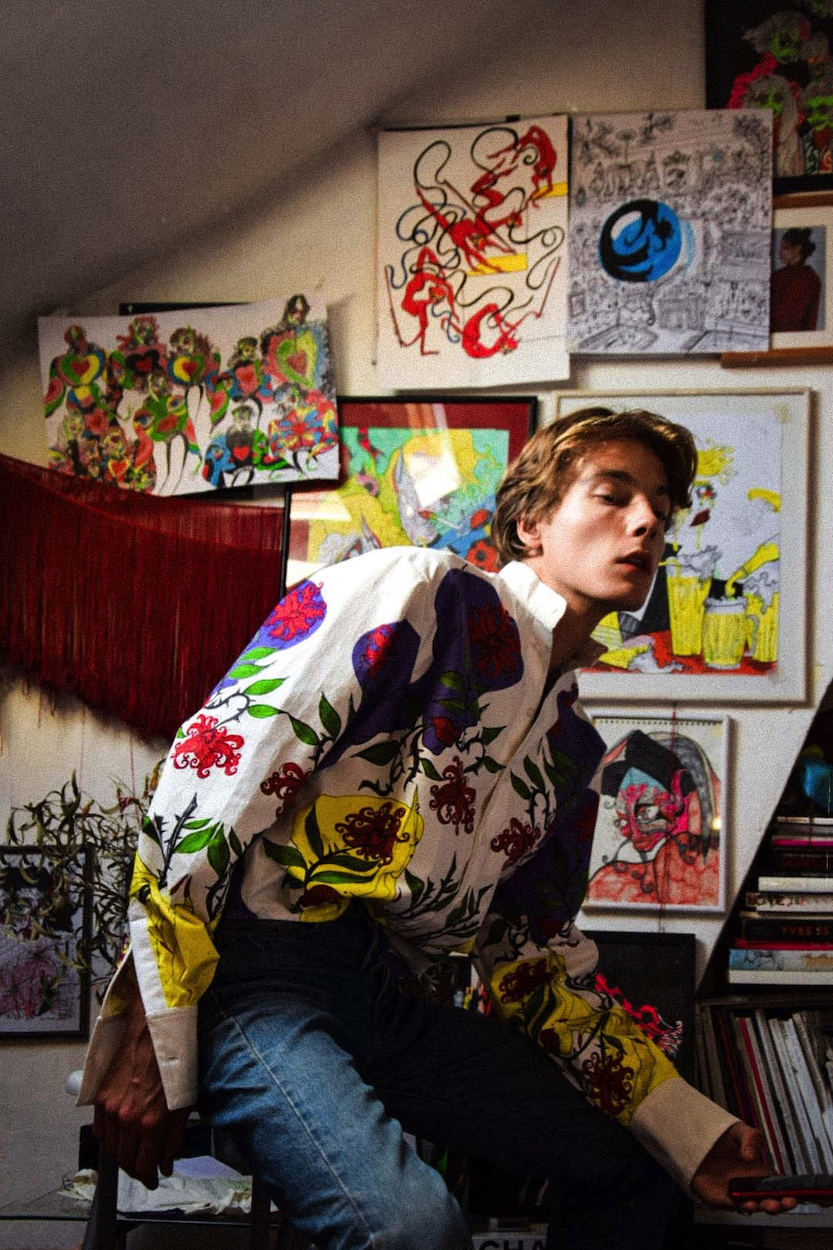
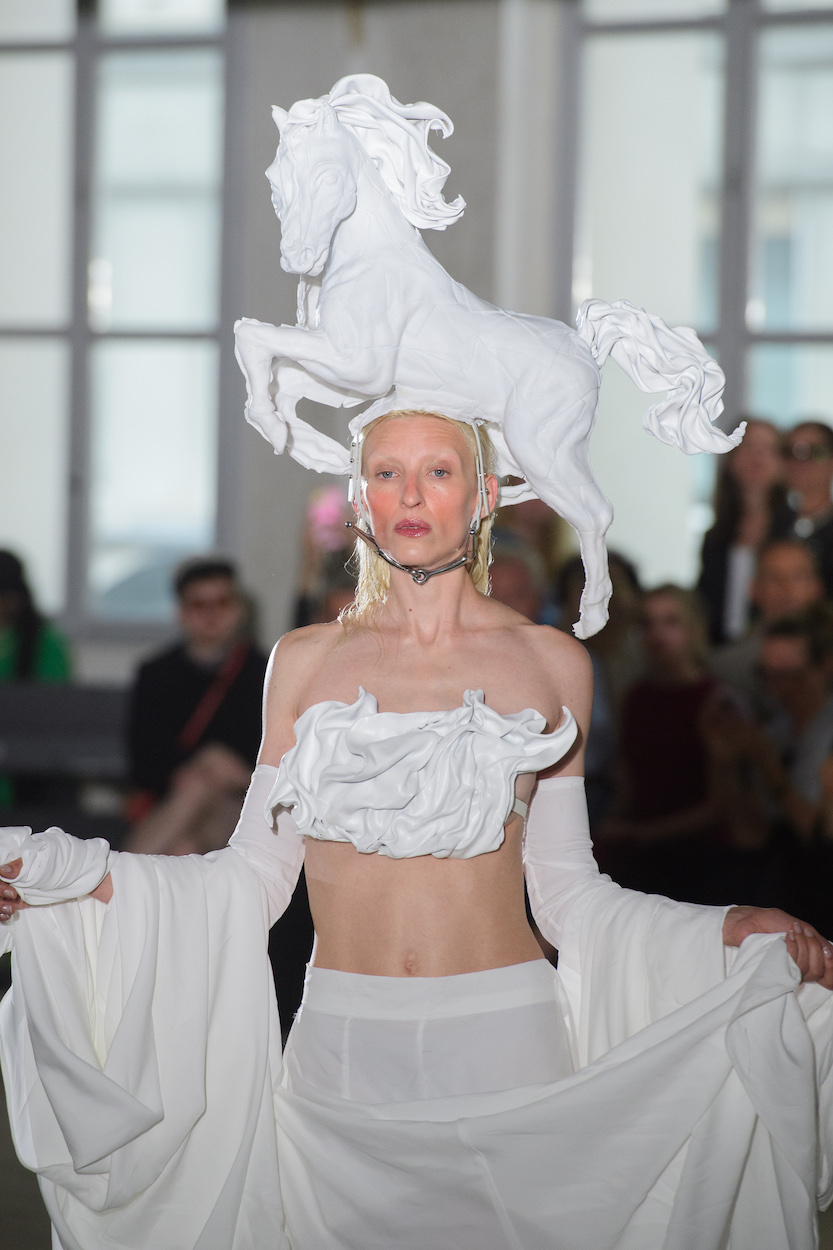
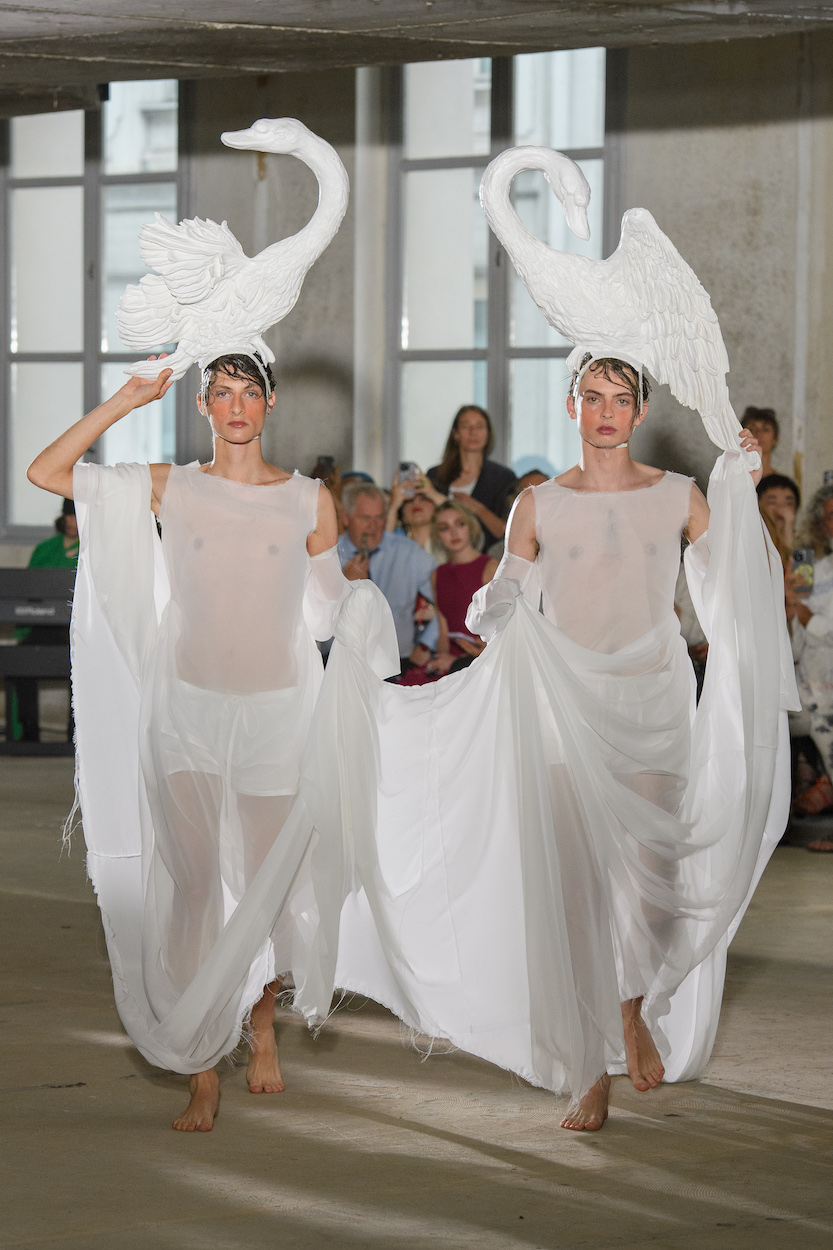
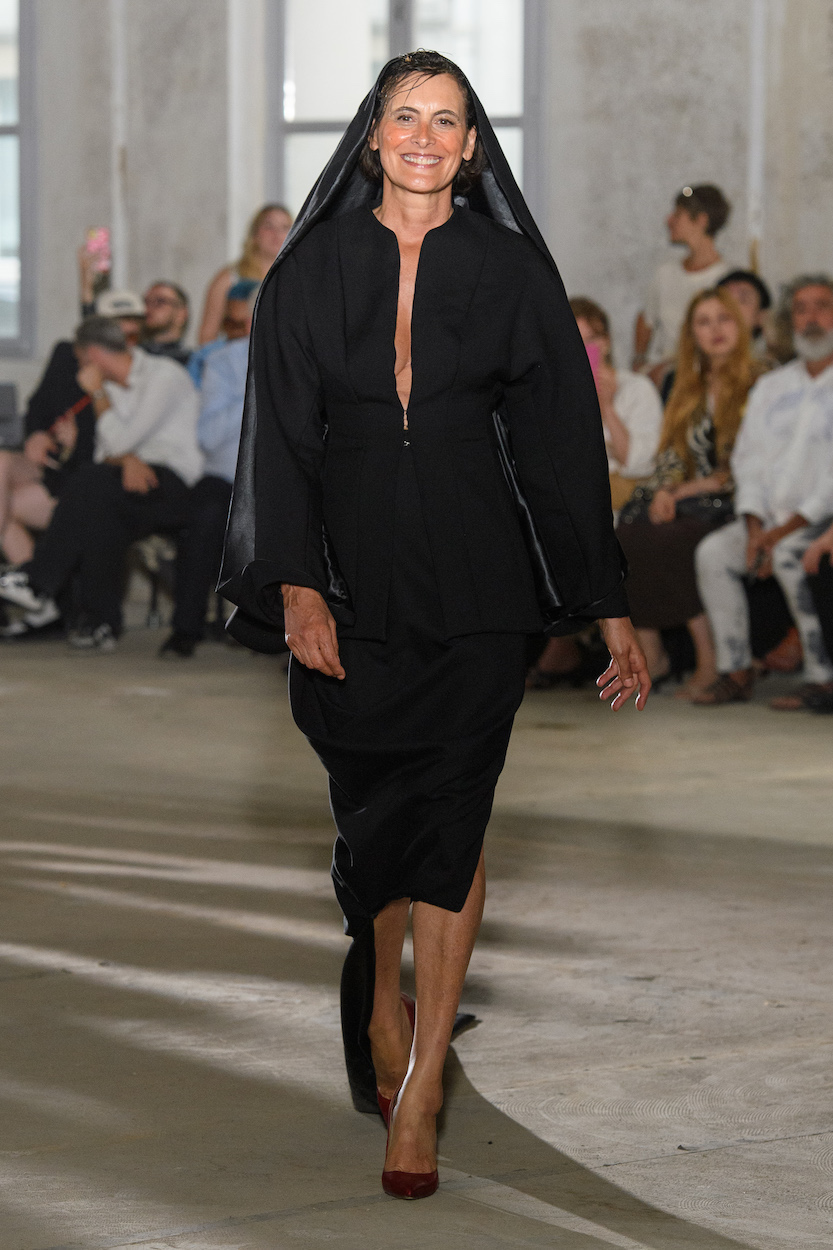
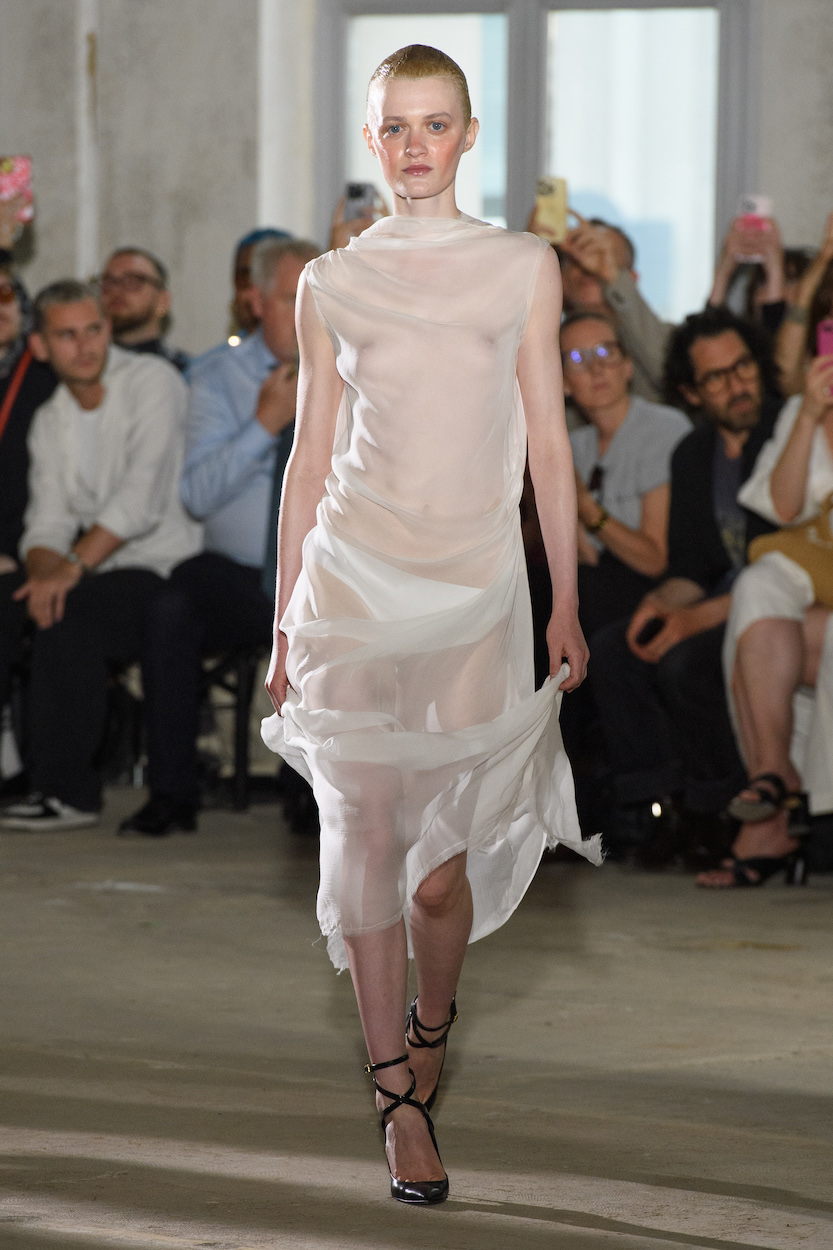
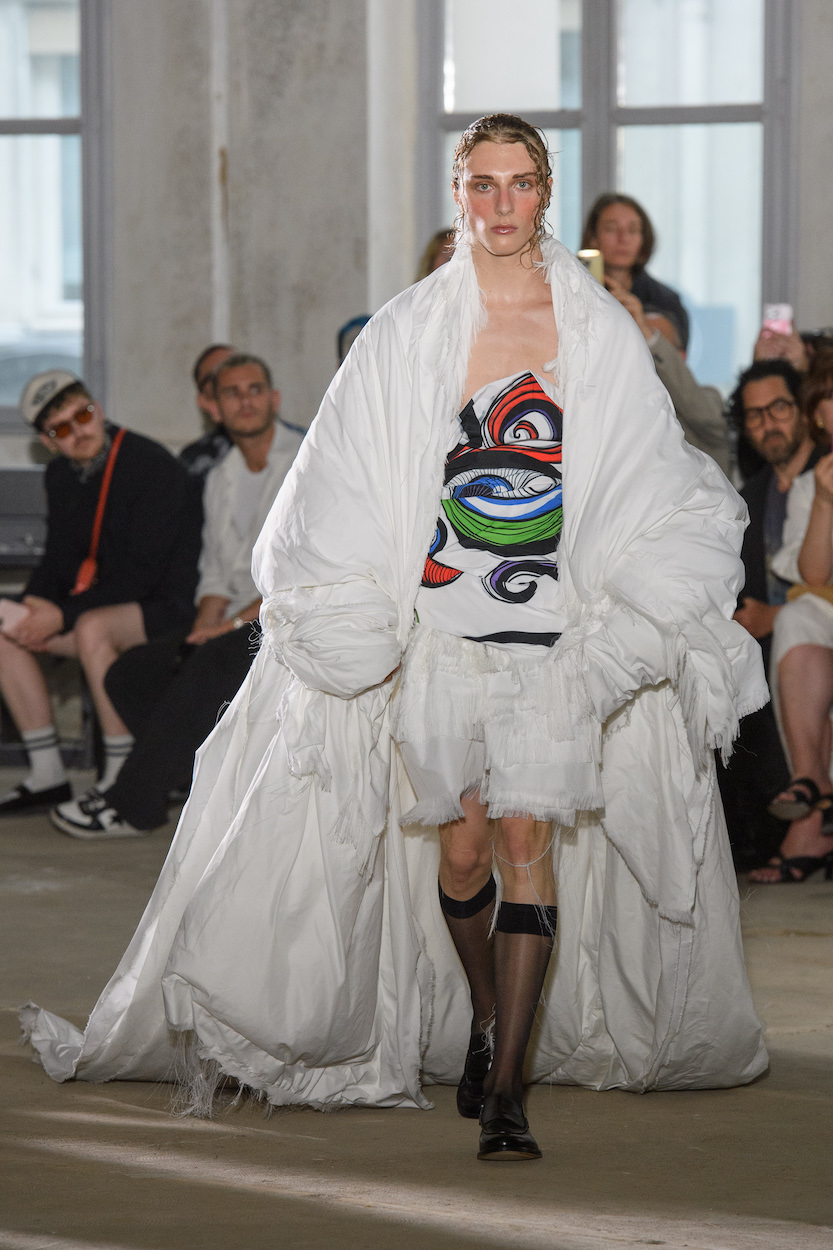
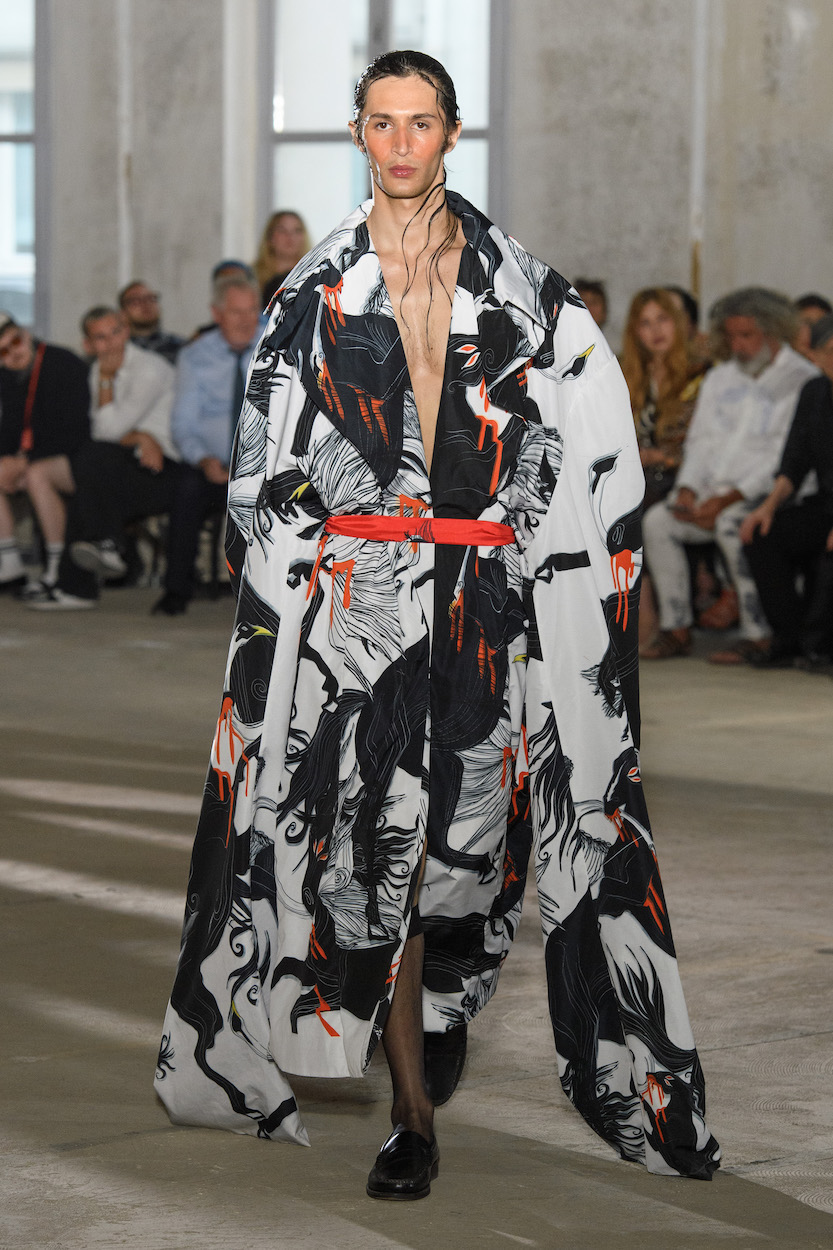
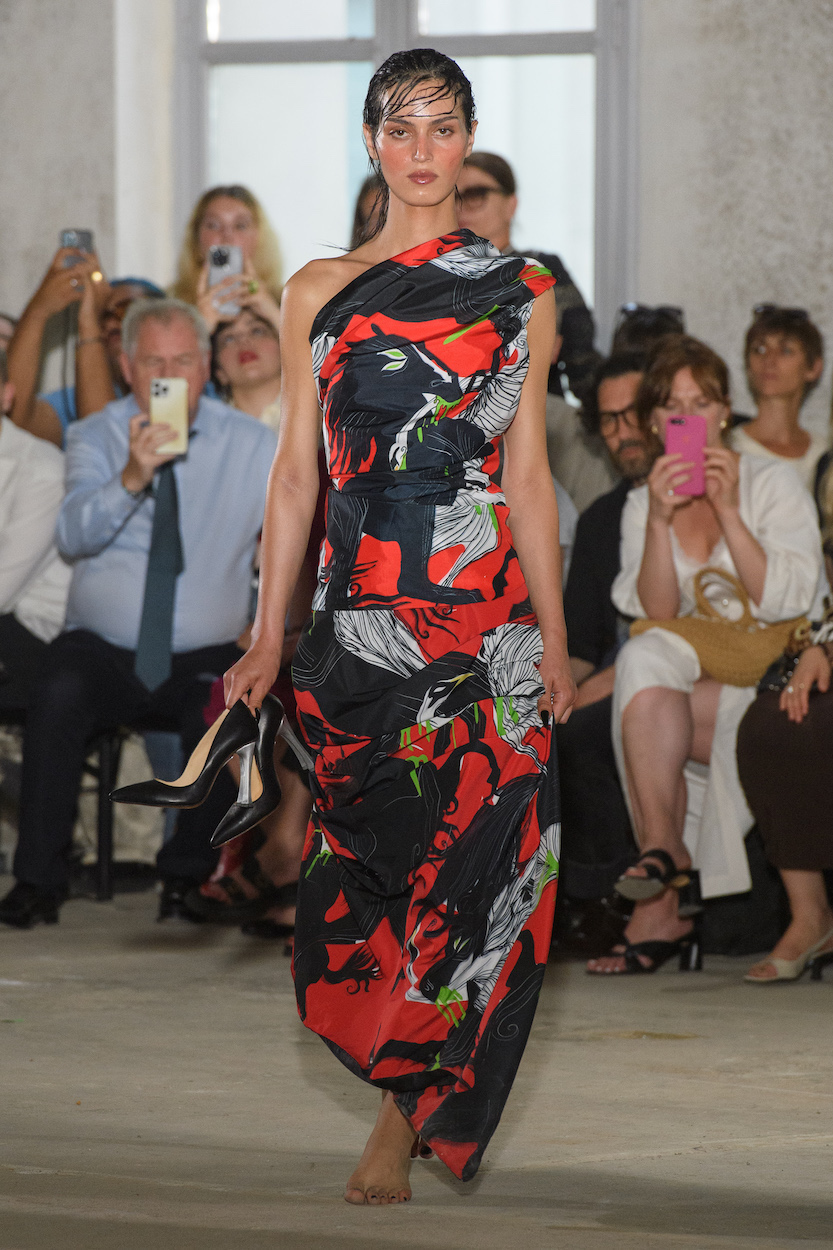
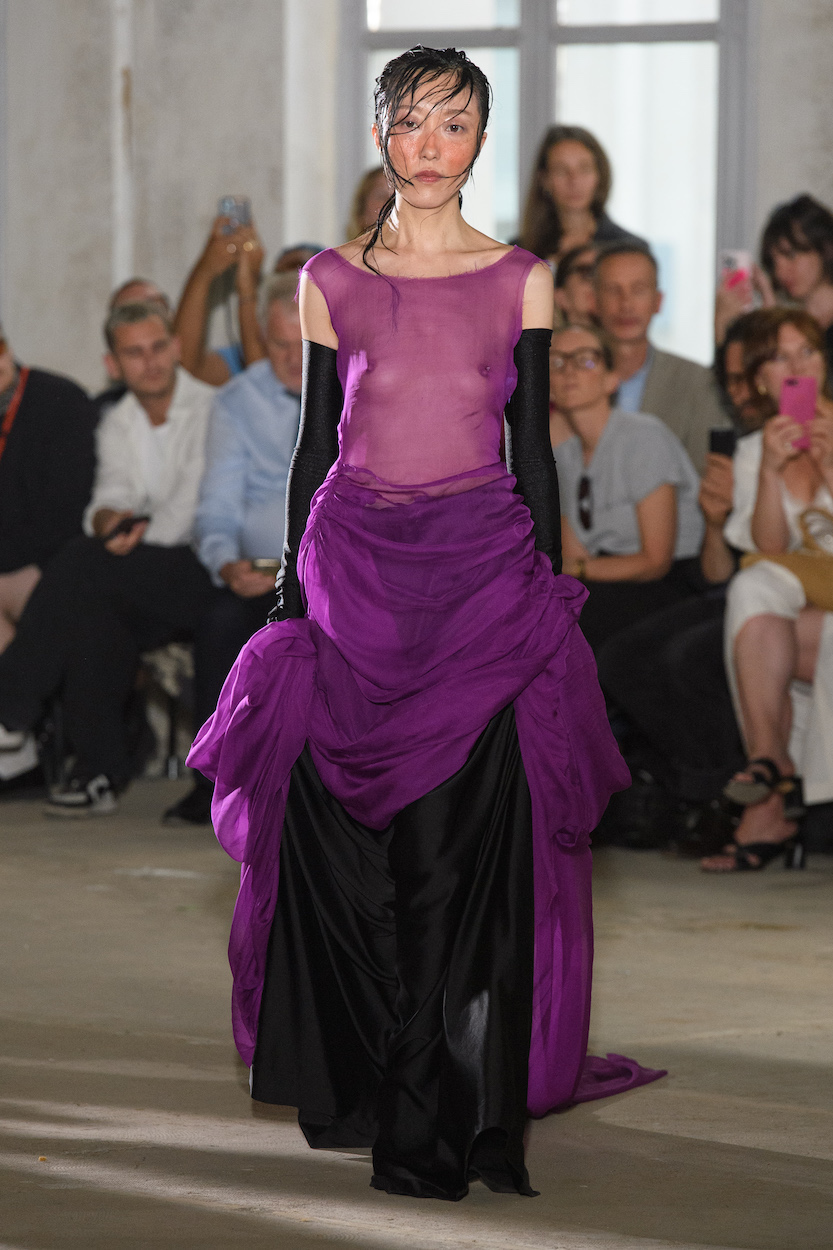
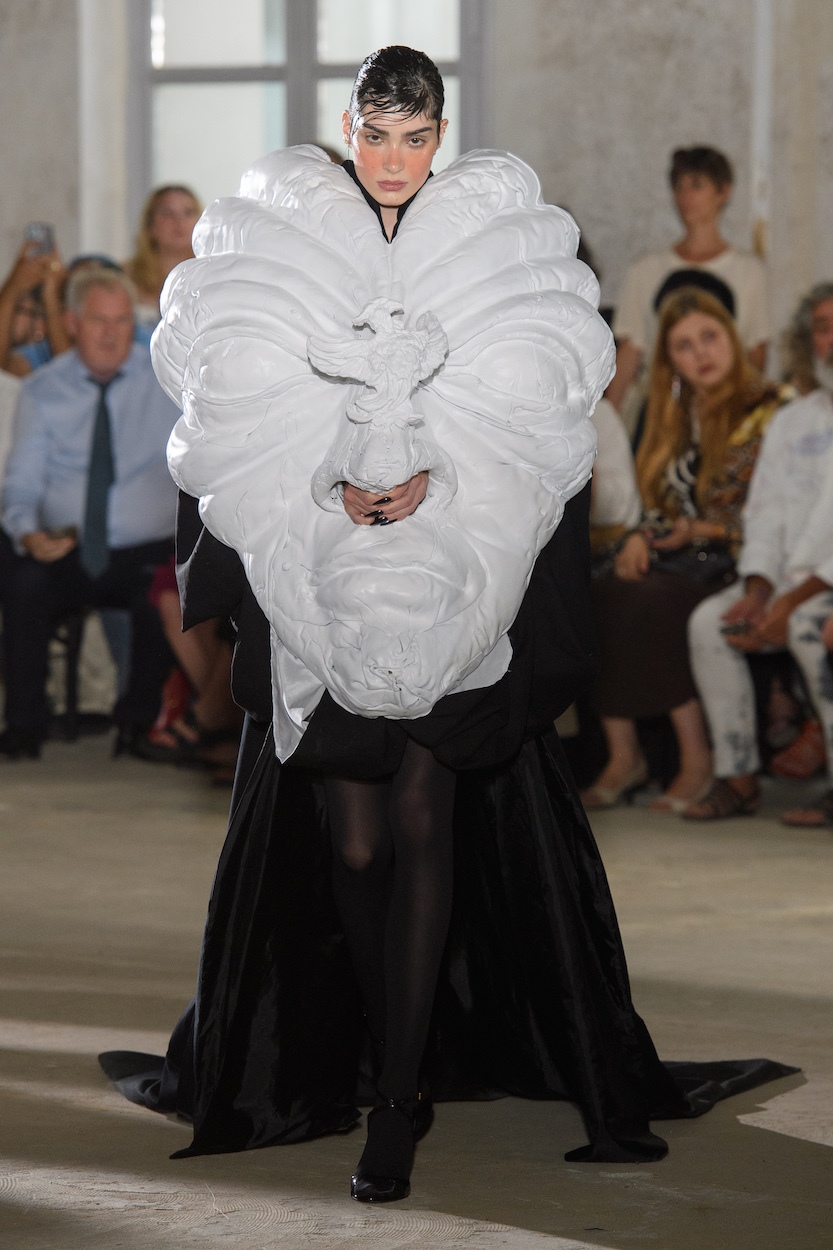
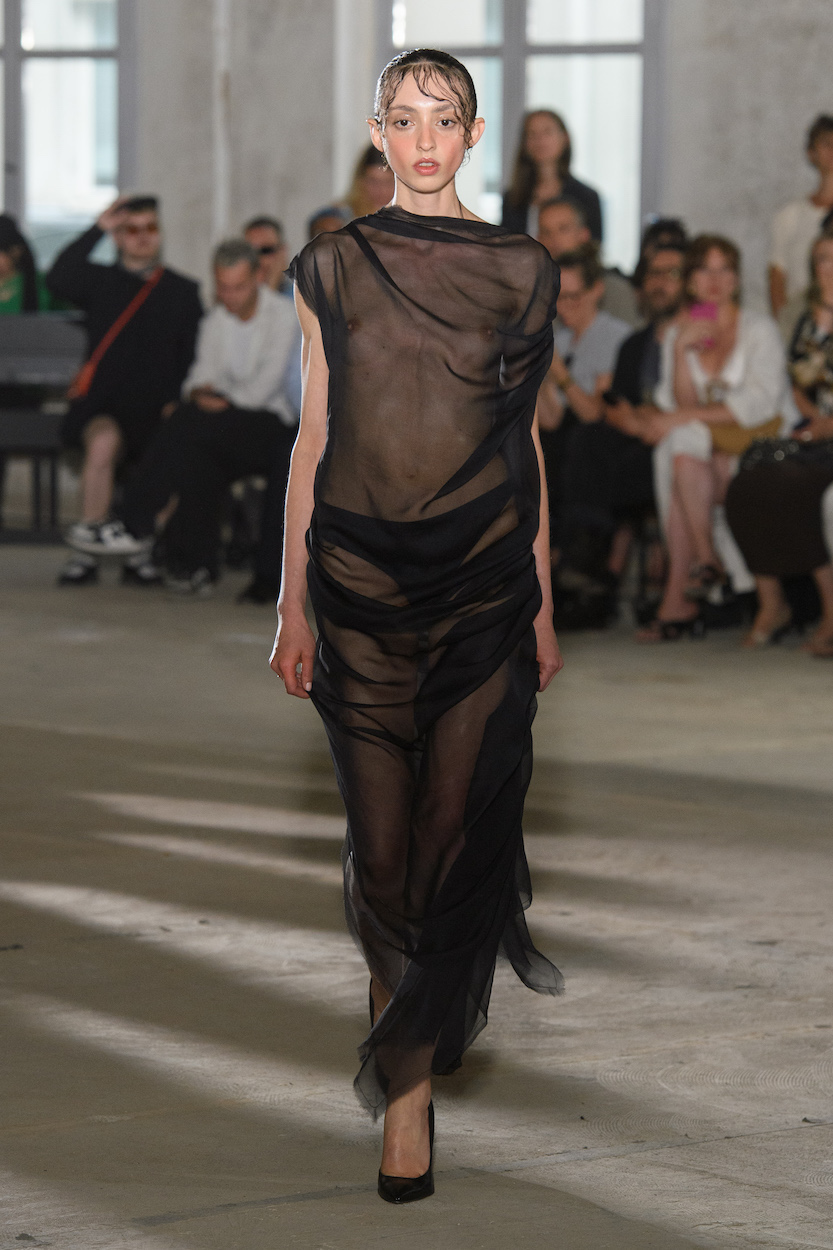
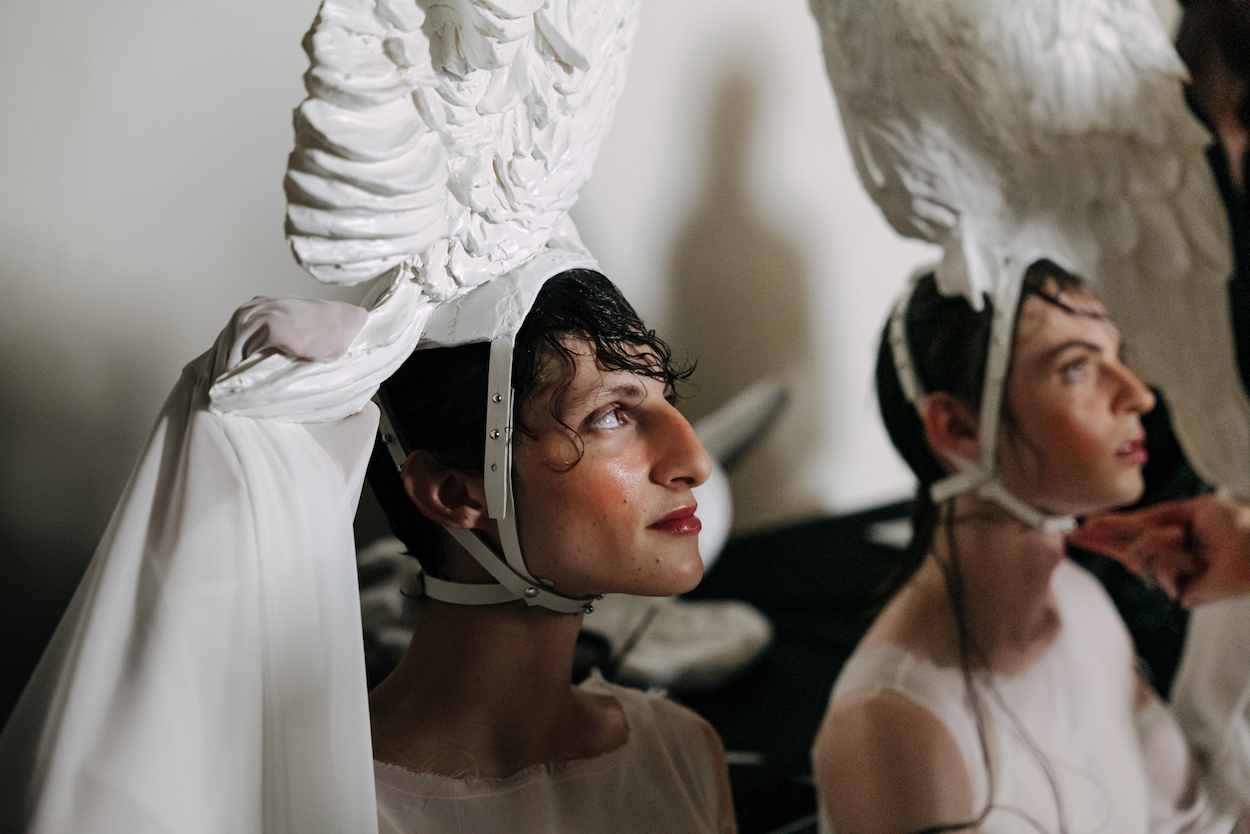
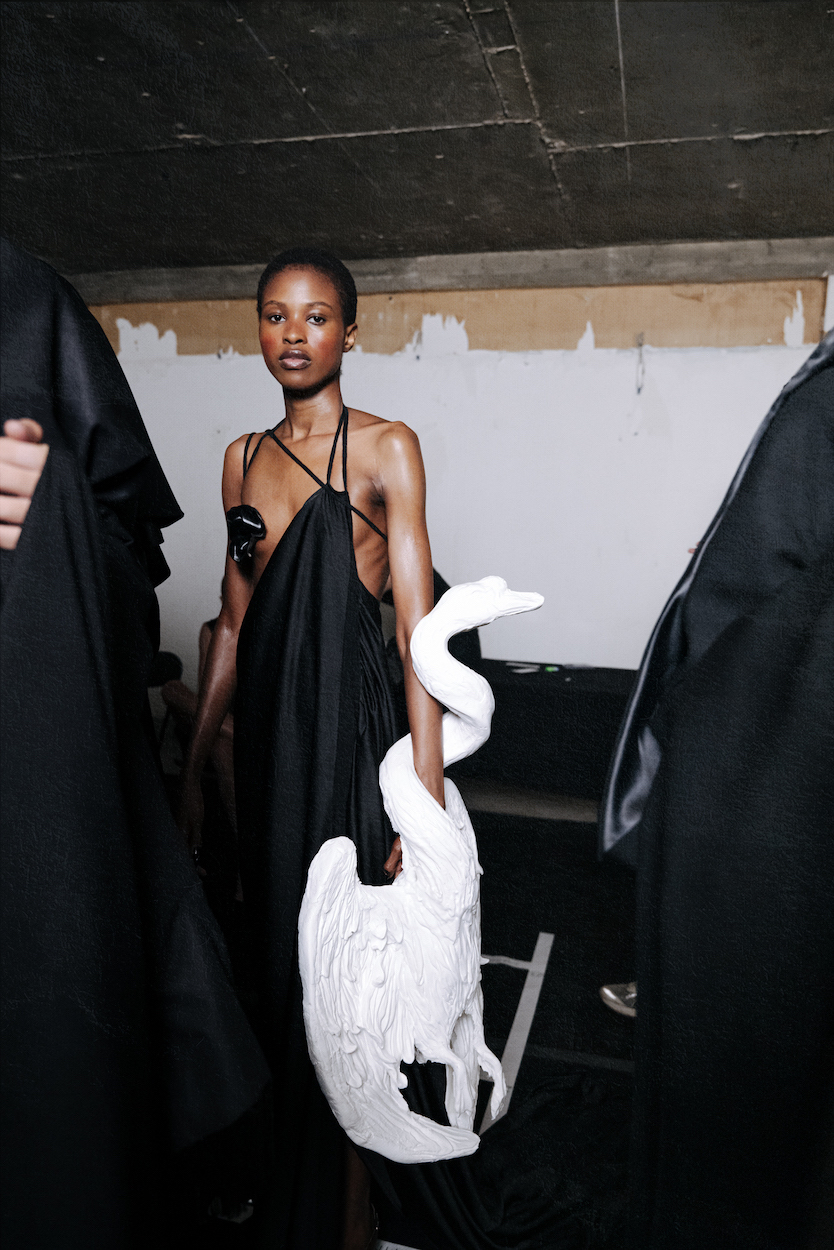
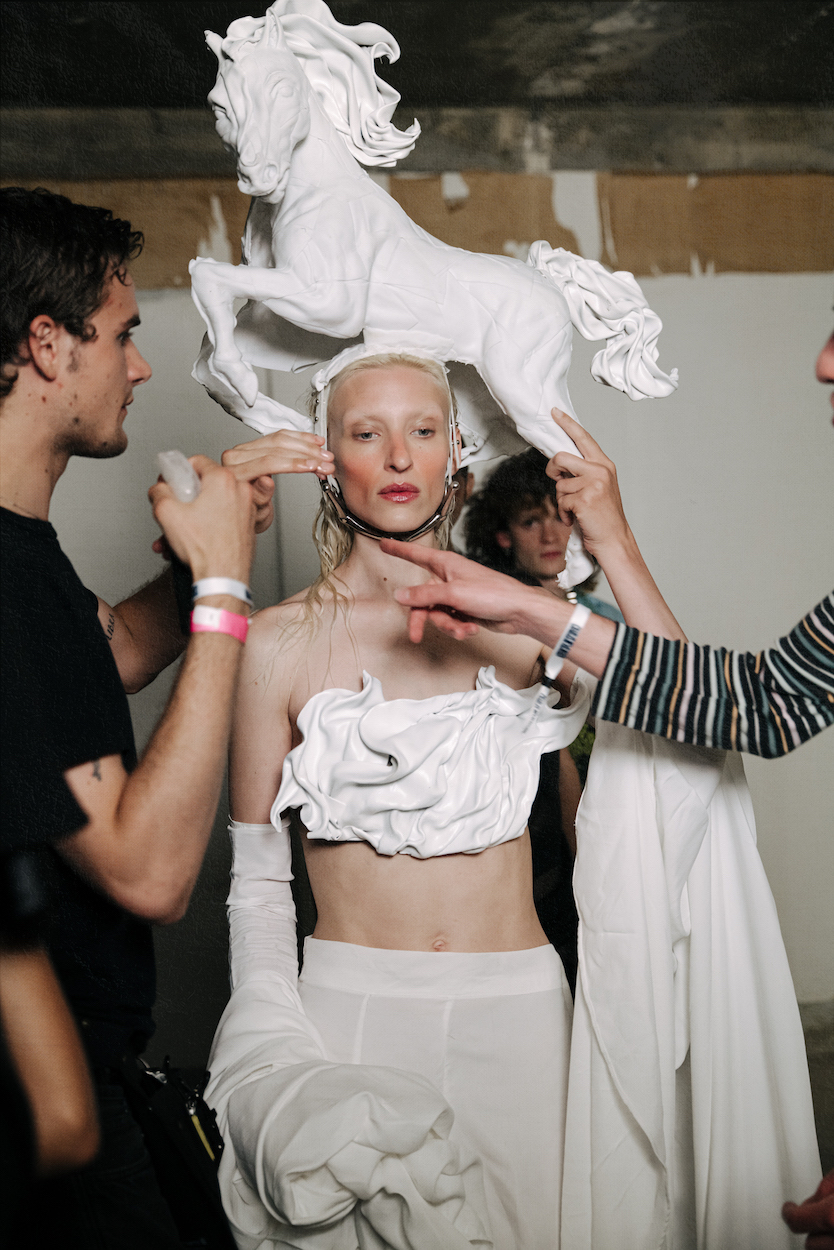
Charles de Vilmorin‘s creations are theatrical and dramatic. At the age of 26 he is the creator of his eponymous haute couture label Charles de Vilmorin. The young Parisian couturier enriched the fashion world at Paris Haute Couture Fashion Week with his first show. Faced with an empty stage, like a blank sheet of paper, Charles explains how he places his characters and his inspirations in order to create a formidable work of art. Talking about his pride in his collection, the couturier shares his future ambitions.
Numéro Berlin spoke to Charles de Vilmorin about his latest FW23 show, his career, his creative process and the importance of theatre in his art.
When I was a child, I was very inspired by the theatre world. I really wanted to play with light, music, clothes, atmosphere, and characters. As I grew up, it was spontaneous. I discovered the world of McQueen, Galliano and all these very theatrical designers. It was like an evidence, I started like that.
If I had to find some words to describe my work,
“I could say dramatic, and of course theatrical.”
Also, narrative because I love to tell stories, and poetic, I hope. Colourful, joyful, but with sometimes a little touch of darkness.
Not really. We can find poetry everywhere, not only in books. Poetry is more about emotions. I’m more inspired by paintings, movies, or pictures than by books.
The link with Louise de Vilmorin and my immediate family is not this close. Of course, we have the same name, and she was a very inspiring, avant-garde, and feminist woman, with an immense talent and numerous amazing friends who are people I really love. It’s more a question of atmosphere because in the de Vilmorin family, there are a lot of artists and even in the different places where I spent my childhood, like my grandparents’ house, the decoration was very specific, with lots of colours and flowers, ‘Vilmorin’ is actually also the name of a flower species. I’m very lucky with my family heritage because it’s open and artistic. It’s not only Louise de Vilmorin. It’s a more global atmosphere.
“Drawing is for me the beginning of everything.”
The starting point of my different projects. I love drawing and it’s essential. Because when you draw a silhouette, for example, it can be very beautiful. But the body is not a real body, it can have exactly the volume you want. The challenge is to bring my drawings to life. And that’s my daily challenge for all my projects.
The inspiration for this collection was creativity in the darkest ways. It was a question of reflection on what I want to show in my work. We have some all-white looks, black looks, and colourful looks. As a designer, for my first show, it was very hard to find the precise things I wanted to present: the “A to Z” is because I struggled to know what I wanted to show at the time. Precisely because the last two years haven’t always been easy for me in terms of showing myself and clarifying my creativity, and my inspirations. This has been the most difficult part of creativity and I wanted to talk about it. My goal for future collections is to be more precise, but for this one that wasn’t the intention. I showed different concepts that are part of my world.
Yes, colours are very difficult to work with because you have to find the right ones. In the past I’ve used a lot of primary colours, it’s not very difficult because it’s red and yellow, it’s quite easy to work with and it works every time. I want to play with colours, but with more precise colours and create new combinations. It’s not easy, I need to do a lot of research and testing to create new and beautiful colour combinations. For this collection, I didn’t really know what I wanted to create with the colours. So, there are fewer colours than in the other collections.
“It’s not especially a piece it’s more a moment.”
The black suit of Inès de la Fressange and the last part with the Maggie Mauer white horse, because these two looks were the more difficult to make and I love them.
I launched my brand in my own name during COVID. I did some videos to present my collection. Later I was at Rochas and had the opportunity to create beautiful shows with a huge production. But this show was my first for my own brand. This means the production and the team were totally different, and I made a lot of things by myself, even for the show. So, it was of course a goal, and it was very emotional for me. I can’t wait for the next one.
My creative process for a collection or any other project, a video for example, is always the same. I imagine an empty stage and first I put in lights, then music. Music is like drawing, it’s one of the starting points of the project because music is more than a source of inspiration for me. It helps me to create the atmosphere and the story of the project or collection. Music, lighting, and then I imagine a bit of set design to create something simple. I start with the set and imagine the silhouettes, the different characters. At the end, I put on some clothes and it’s always the same process.
“It’s like a theatre, it’s an empty stage and then you put on the different elements, and you create something.”
For this collection, I wanted to tell the story of a quest, an adventure. The location of the show inspired me because it looked a bit like a ghost city, full of concrete. I wanted to create characters who would walk through the forest for a fortnight. So, I imagined all the wet looks, with the hair close to the face. It’s the story of an adventure, as if they were walking through this ghost town. The first name of the collection was ‘Les Vagabonds’. The collection has a lot of rough and frayed edges, and too long clothes that the models must lift to be able to walk. The story was about freedom and adventure, for the swan and the horse for example, which can also be found in the music, through horse noises of all kinds.
The first sculpture was the horse, and it was just a vision I had of a white dress with a big horse on its head. There’s no specific inspiration. Sometimes ideas just come, when you’re walking, and you have a vision, when your spirit shows you something. Later I had the idea of the swans.
“Each collection is different, it’s not the same story.”
Of course, there are some links. For example, you can link this collection with my first full black collection. It’s not an intention, and I think it’s natural and important to build a DNA, to have links between your collections. For this latest collection, there are three distinct acts. The first one is a white part. It’s like a blank sheet of paper, when you start to create something, and you don’t know how to start. Then you have the more coloured part with the prints. This is the craziest part of creation, when you don’t know how to stop creating. Creation with no limits. I deleted lots of looks from this part of the collection; five looks weren’t in the show in the end. The third and final act is black, more sophisticated and couture, followed by the white final look. It’s the story of a creative process.
“Starting with a white paper, trying something, and ending on the more sophisticated black part.”
Not really, it’s a very different project. The dress is inspired by my sister. It’s not part of the story of the show, but I think this dress is a source of inspiration for my next show. It was so nice to make this dress. This dress is full of joy with big flowers, it’s for a wedding, so it was complicated to do something dark for her. I love this dress, and I really want to continue this story for the next project.
Movement is one of the most important things in a silhouette and in a collection, especially on a show. I love moments where I can play with movement – for example when I was doing videos with dancers, it was pleasant. Movement is important, for the emotional part of the show because it’s very close to music, but it’s first a question of fabric. In the collection there are a lot of very light little silk dresses. I love the movement of silk.
“I want them to feel strong and free.”
It’s very personal, it depends on the person. This is the most important thing when you buy clothes: you want to feel strong in your body and proud of the way you look.
It’s not really an intention because for me, it’s just very natural. In my process of creating a look, I need to put it on me and live in my apartment with the look to see how it moves, how I can use the sleeves and those volumes.
“I see all my looks on me, on a boy.”
From my point of view, we need to see men in couture looks because in real life, I’m sure there are lots of men who wear couture. I think it’s very modern to put men in couture shows. And this season we’ve seen a lot of men on the catwalk. It’s not an intention. It’s not a political gesture, it’s just something natural for me.
I’m at the beginning of my career because I launched my brand 3 years ago. We had the Rochas part for two years, and my brain was a bit in standby. I learned a lot during these three years, especially at Rochas, more specifically about the commercial part. I want to take my brand forward and create, not necessarily the ready-to-wear part, but I want to see people in the street wearing my clothes. This collection has a beautiful potential in a more commercial way. I really want to work on this part.
I love to work with artists. They can be painters, singers, actors, or actresses. For my brand, I want to continue to work with different artists. I love to be surprised every day, and I don’t know what might happen. I don’t have any specific objectives; I just want to do my best with my brand and make beautiful creations.
In a close future,
“I would love to see a beautiful picture of Lady Gaga with my horse.”

From grains of sand to towering sculptures, Jeewi Lee's work transcends the boundaries…
Interview by Marcus Boxler

Take the vibe of a techno club at 4 am, a touch of 90s nostalgia and humor, paired with a…
Images courtesy of GASM, OR? Words by Antonia Mittmann and Ann-Kathrin Riedl
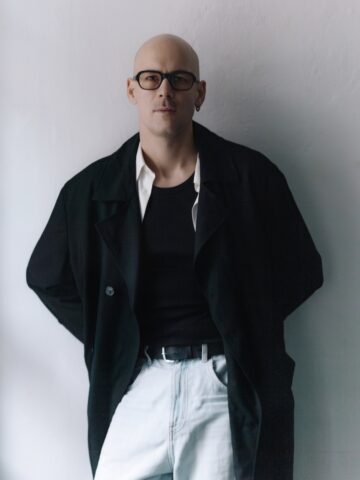
Perfume brand owner David Roelen brings a fresh and uniquely personal perspective to the…
Interview Antonia Mittmann